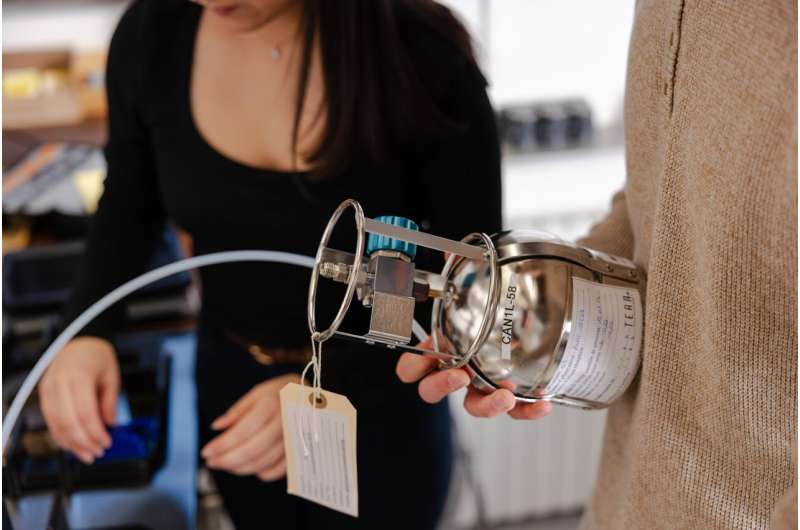This article has been reviewed according to Science X's editorial process and policies. Editors have highlighted the following attributes while ensuring the content's credibility:
fact-checked
peer-reviewed publication
proofread
New study confirms presence of benzene in natural gas and potential for undetectable indoor leaks

New research finds that even people with an average sense of smell could be living with a natural gas leak and not know it. The study, published in Environmental Research Letters, finds that small gas leaks can impact indoor air quality by introducing a number of hazardous air pollutants, including the carcinogen benzene, which researchers found in 97% of natural gas samples across North America.
"While these smaller leaks are not large enough to cause gas explosions, hard-to-smell leaks are common," said lead author and PSE Healthy Energy Scientist Sebastian Rowland. "The fact that they are so small makes them hard to identify and fix, which can lead to a persistent indoor source of benzene and methane."
The study is the first to assess whether gas leaks contain enough odorant to protect against elevated levels of benzene exposure, and provides the most comprehensive data to date on residential natural gas composition.
Researchers from PSE Healthy Energy and Stanford University collected and analyzed 587 samples of natural gas from 481 residences through 17 North American cities. Samples were tested for methane, hazardous air pollutants, and sulfur-based odorants and researchers modeled the amount of gas that could leak undetected by a resident with an average sense of smell. Their findings confirm that benzene and other hazardous air pollutants are present in nearly all natural gas supplied to households, buildings, and businesses throughout North America.
"Our nose is the first and only line of defense against household-level gas leaks," said PSE Senior Scientist Drew Michanowicz. "Given the variation in odorant levels and the enormous disparity in the ability to smell across the general public, our findings really call into question the sole reliance on odor to protect people from gas leaks."
On average, gas delivered to homes in Vancouver, Los Angeles, Calgary, and Denver had twice the benzene levels than the other cities, with benzene levels in Vancouver nearly fifty times greater than that of the lowest-concentration city, Boston. Odorant levels in Houston gas were approximately five times higher than Toronto, whereas the neighboring cities of New York City and Washington, D.C., appeared to use different odorant products altogether, indicating a lack of standardization.
On average, measured natural gas odorant levels should alert most occupants to gas leaks that can lead to high benzene exposures; however, each household faces a different situation due to differences in personal smelling sensitivity, ventilation rates, gas composition, and barriers to fixing leaks after detection.
The researchers suggest that regulators and consumers would benefit from greater transparency of natural gas composition, such as open access to natural gas composition data and regular sampling. Additionally, improving leak detection through stricter odorization standards or increased usage of leak detecting devices, or reducing gas use altogether can improve indoor air quality and public health.
More information: Sebastian T Rowland et al, Downstream natural gas composition across U.S. and Canada: implications for indoor methane leaks and hazardous air pollutant exposures, Environmental Research Letters (2024). DOI: 10.1088/1748-9326/ad416c. iopscience.iop.org/article/10. … 088/1748-9326/ad416c
Journal information: Environmental Research Letters
Provided by PSE Healthy Energy




















